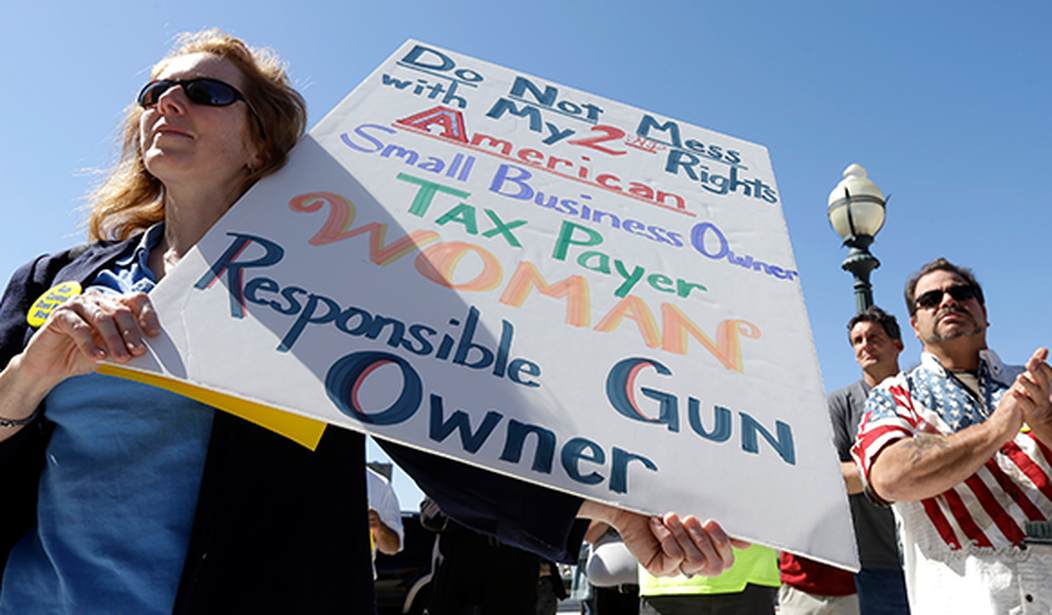As Second Amendment activists, it can often feel like our efforts to restore and claw back our right to keep and bear arms are fruitless, especially in those places that have a long history of hostility to gun owners. But grassroots activists are making a real difference; from the volunteers in Massachusetts who collected the signatures of more than 90,000 residents in order to put a repeal of the state's latest gun control laws before a vote of the people, to the lone advocate in Canton, Ohio who recently managed to get one of the city's "gun-free zones" repealed.
The Canton Parks Commission voted earlier this week to amend a municipal ordinance that lists firearms as one of the items prohibited in city parks, and Parks Director Doug Foltz told the Canton Repository that it was local resident Daniel Gates who informed him that the ordinance conflicted with Ohio's firearms preemption law and needed to be removed from the city code.
Gates, who did not attend Tuesday's meeting, welcomed the news that Canton's park law on firearms no longer conflicts with state law.
"I'm glad that they made a decision that should have been made 16 years ago, and it gives me hope that the constitution might still hold weight," he said.
Gates, a gun owner and advocate for the past eight years, previously told the Canton Repository that he became aware of the city’s policy prohibiting guns after police officers followed him around Centennial Plaza during a First Friday event that he attended with his firearm on his side. Gates’ father later asked the city’s police chief about the interaction and the chief said that anyone carrying a firearm in a public park would be arrested due to the city's park policy.
As Gates says, this should have been done long ago, but at least he was able to get the carry ban struck from the books without the need for expensive and time-consuming litigation. The city could go even further, however, if officials choose. While the carry ban in parks has been undone, the city still prohibits lawful carry inside buildings located on park grounds, with the exception of outdoor bathrooms.
While Ohio's firearm preemption law generally prohibits localities from setting their own gun control ordinances, a separate section of state statute declares most government buildings off limits to lawful concealed carry, with exceptions only for buildings primarily designated as a "shelter, restroom, parking facility for motor vehicles, or rest facility".
State law does, however, allow for municipalities to specifically allow for concealed carry in those buildings if officials choose, so the Canton City Council or Parks Commission could further amend the city's code and scrap the "gun-free" designation for other buildings located on city property.
Maybe that will be Gates' next objective, though it's likely to be a bigger challenge than getting Canton to comply with existing state law. Still, there's no good reason why a lawful gun owner should be trusted to carry in Centennial Plaza or a park restroom but prohibited from doing so inside the Canton Garden Center, located on the grounds of Stadium Park.
Regardless of what Gates decides to do next, he should be proud of the fact that city officials are crediting him with the recent repeal of their carry ban in local parks. And gun owners around the country can take a lesson from his grassroots activism; one person really can make a difference, so long as they're willing to speak out and stand up for our Second Amendment rights.
A lot of these municipal ordinances are unknown to Second Amendment groups and 2A activists, especially if they're largely unenforced. It's not a bad idea to take a look at the ordinances in place in our own communities to make sure they comply with state and federal law. If there's an issue, alert your city council member or county commissioner and give them the opportunity to fix the problem, and if that doesn't work you can always reach out to the Second Amendment organization of your choice for help. Sometimes a warning letter from a 2A attorney will prod officials to act without the need to actually file a lawsuit, but litigation is always an option if and when anti-gun politicians refuse to take their unconstitutional ordinances off the books.









